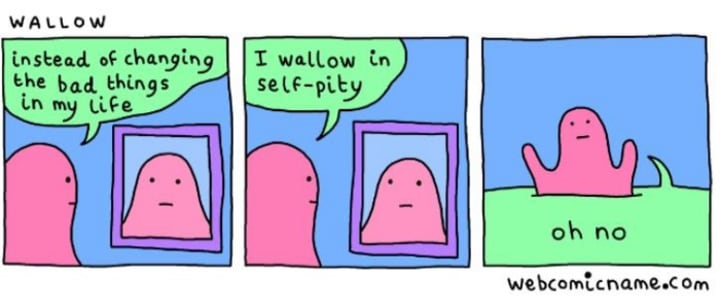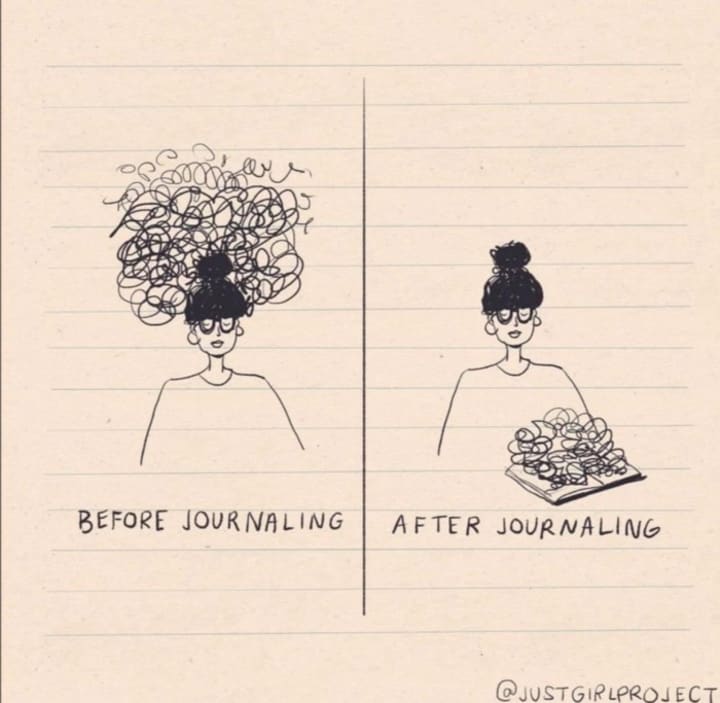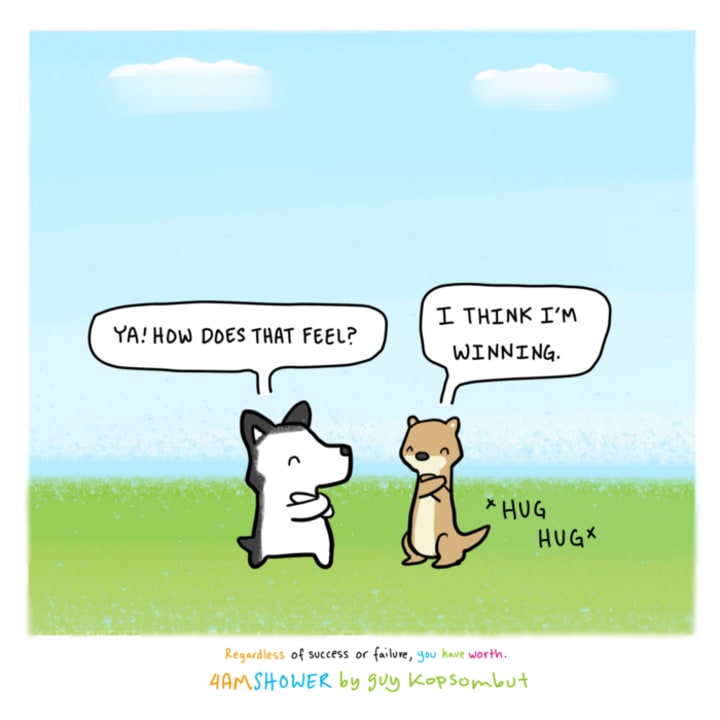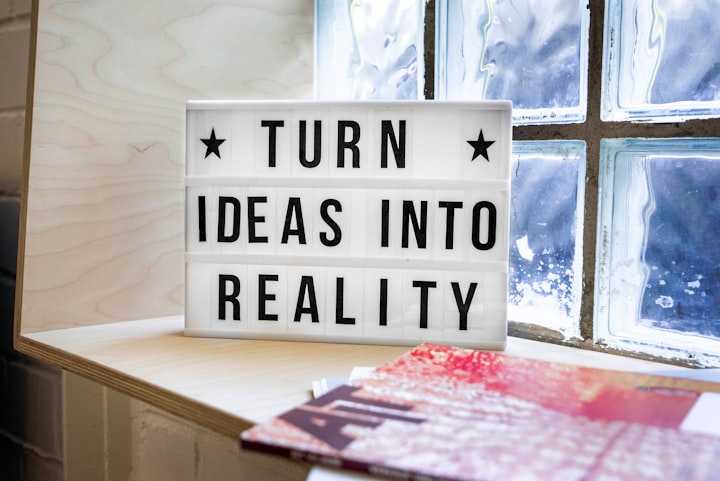On Replacing Self-Pity with Self Compassion
5 Practical Ways To Change Your Inner Dialogue For The Better

The pandemic has made us feel isolated, alone, disturbed, anxious among many other feelings. In the last seven months of isolation, I’ve experienced it all.
In difficult times, it’s easy to get trapped in the cycle of self-pity. It’s easy to start feeling sorry for yourself and ruminate endlessly about your problems. It’s easy to start bearing resentment in situations that feel unfair.
Sadly, as easy as this feeling of self-pity comes, it doesn’t help us in any way. In fact, it only leaves us feeling worse.

“I don’t want it to end, and so, as every therapist knows, the ego does not want an end to its “problems” because they are part of its identity.
If no one will listen to my sad story, I can tell it to myself in my head, over and over, and feel sorry for myself, and so have an identity as someone who is being treated unfairly by life or other people, fate or God. It gives definition to my self-image, makes me into someone, and that is all that matters to the ego.”
- Eckhart Tolle
Self-pity is nothing like self-compassion, which on the other hand, is a superpower that can help us navigate through difficult times.
The more I read about self-compassion, the more I am convinced that each and every person needs to start practicing it. Especially at this time.
There’s so much awareness about mental health but not enough about the tools that can help us navigate through difficult times. Self-compassion is one such tool that can help us change internal dialogue, thereby improving our mental health.
Here are 5 ways to practice better self-compassion —
1. Replace Feeling Sorry For Yourself With Self-Kindness
When the official lockdown ended, almost everyone I knew started moving around and meeting people. I stayed indoors as I didn’t want to put my parents at risk, especially my mother who suffers from Asthma.
It didn’t bother me at first. But after a few months, I started to feel disconnected from the outside world.
Though I stayed indoors by my own choice, I started to feel resentment at my friends and everyone else who was getting to live a more normal life.
But here’s the thing — Resentment is a feeling that only harms the person who is harboring it. And if it manifests in the form of anger towards the other person, it spoils relationships.
Behind all feeling of resentment, lies a belief that something unfair happened to you. In my case, the resentment came from the feeling that it was unfair that I had to be indoors while others were getting to have the fun that I so badly missed.
But that’s how it is many times. Life is unfair and it’ll be unfair to you in some ways.

During such times, your internal dialogue will decide how you deal with the situation. It’ll determine whether you remain stuck or pull through.
Instead of feeling sorry for yourself, try another approach of just being more kind towards yourself.
Start practicing self-care seriously. Track your sleep and plan your meals. Start giving yourself more breaks, more playtime, more treats, more time, and more space to recover from feeling the way you do. Allow yourself to feel sad for all the things that feel unfair to you. And then process the pain and let it go.

2. Remind Yourself Of How You’re Not Alone With Your Struggles
Self-pity can get you stuck in a bitter state of mind. Everything is about you. How you didn’t get what you needed. How bad everything feels to you. How unfair it is for YOU.
Now, the idea of self-compassion isn’t to minimize your struggles, but rather to remind yourself that you’re not the only one to struggle and feel pain.
Even when you’re hurting, you can remind yourself you’re not the only one to hurt. Suffering is a shared human experience. You’re never alone in feeling the way you do.
Once you start thinking that way, you begin to feel less isolated. You become open to understanding how other people have navigated through similar experiences. You can start reading and start watching movies/documentaries to feel connected to the stories of others.
You’ll realize that pain and suffering are everywhere and it has inspired creativity since the beginning of time.
“Because in our pain we must find each other — mirror to mirror the grace of our shared humanity, the stunningly broken beauty of our shared grief.
And you can let your grief see my grief and let our tears mingle into some kind of healing alchemy, and you’ll know what i know.
That we are never alone.
I promise. You and me? We are never, ever alone.”
- Jeanette LeBlanc
3. Observe Your Suffering Instead Of Ruminating
Ever wondered why journaling is considered an important exercise for maintaining good mental health? Because it serves as a powerful tool to observe your own thoughts.
Not all our thoughts help us. Some of them are just endless and futile ruminations about things that happened in the past, worry about the future, or rants about the way things are in the present.
Journaling, through the technique of writing morning papers or creating brain dumps, is useful for getting out of your own head.

“What a comfort is this journal. I tell myself to myself and throw the burden on my book and feel relieved.”
― Anne Lister, I Know My Own Heart: The Diaries, 1791–1840
4. Talk To Yourself Like You Would Talk To A Friend
Our responses to our own problems are often not the most compassionate and kind ones. We are good at being there for others but not so good at being there for ourselves.
Next time you face a problem or commit a mistake, watch your thoughts. Instead of being hard on yourself, take a kinder route. Give yourself some grace for hurting, for over-thinking, for making a human mistake.
Keep a few phrases handy and actually repeat them to yourself aloud or in your head —
- I choose to be brave and tell others if I need their support.
- My body knows how to get better; I will listen to it and rest when needed.
- I’m not sure what will happen tomorrow, but I’ll take care of myself so I am strong enough to face it.
- I trust myself.
- I am a good person.
- My spirit is beautiful.
- I make a difference in this world.
“Talk to yourself once or twice a day. Otherwise, you may miss meeting an excellent person in this world.” — Swami Vivekanand
5. Hug Yourself
Does the idea of hugging yourself sound absurd to you? It did to me when I first read about it.
I love hugs. When they come from our loved ones, they make us feel comforted and safe instantly. It’s one of the best feelings in the world.
However, lately, I’ve been unable to hug a lot of people I love. It’s been hard. So, I was pleasantly surprised when I came across the idea of hugging yourself.
I tried it a couple of times. It’s quite simple actually. All you need to do is cross your arms in front of your body and feel very pleased with yourself. It does feel nice!

It’s one of the best ways to practice self-compassion. Physically comforting your body helps increase the feelings of love and tenderness towards the self.
It takes a long time to build the habit of practicing self-compassion. It requires a lot of self-awareness to catch yourself from falling into self-pity.
However, staying mindful and following these simple tips will definitely help you deal with the situations better.
____________________________________________________
I am Shreya Dalela, a copywriter & digital strategist. I help companies and individuals create a powerful brand voice and effective content marketing strategies.
This article was originally published on Medium.com.





Comments
There are no comments for this story
Be the first to respond and start the conversation.